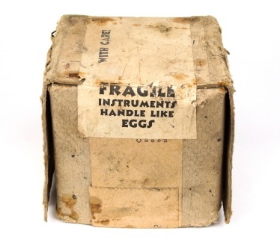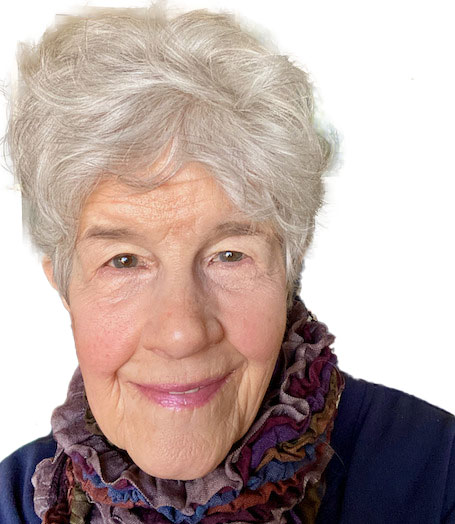Volume 2, Issue 12

Being highly sensitive has its blessings and its drawbacks, sometimes both, simultaneously. Much of my work has been about how to use EFT to heal the wounds of the sensitive nature so that we are empowered to use our gifts in the service of ourselves, our families, our communities and the world itself.
Here are some ways to gather information for tapping with a sensitive person. A highly sensitive person might want to learn more about their trait, and perhaps even tap for the feelings that being “so sensitive” have brought up in them. But help them to keep in mind that everything for them will be more vivid, more intense, a deeper experience of pain or a richer experience of joy.
One place to begin is by defining what it means to be highly sensitive.
*Tap on the Definitions
Does this describe you, or anyone you know?
You feel emotions deeply, and you can’t hide what you feel.
You are always aware of what people around you are feeling.
Your feelings are easily hurt by criticism or even a look, and you keep thinking about what happened, and what you might have done wrong, and what you should have done instead.
You feel deeply for other peoples’ suffering. It is difficult to watch the news, or to see sad movies.
Sometimes you can slip easily into feeling anxious or depressed, and once caught in the feeling it is hard for you to move out of it.
You are not comfortable in large crowds, hectic environments, or around loud music. You get easily overwhelmed when there is a lot going on.
You are a perfectionist, and you want to be helpful – so much so that you put other peoples’ needs ahead of your own.
You do your best to avoid conflicts.
You might feel like an alien in your own family. They are practical, industrious, social, while you are quiet, imaginative, thoughtful and creative.
You have a mission to bring peace to the world. You want to save the world from itself. You can see how good things could be, if only…

*Ask people to make “Positive” and “Negative” lists about their sensitivity, and tap on the lists.
When I have asked groups of sensitive people what they like best and least about their sensitive trait, I have gotten answers that reflect the above qualities:
Drawbacks to being so sensitive:
I notice more details, and when I comment on them people think I am weird
I am too attuned to what feels like impending criticism or disapproval
I feel socially awkward because I am not good at small talk
I am too empathic – I feel what everyone else is feeling
Being so sensitive makes me fearful
I seem to vibrate with the energy around me
I don’t have good boundaries—I seem to become the other person
I lose myself
Every nuance of a situation penetrates me
I get nervous easily
I try to protect everyone
I worry about being a victim
I put other peoples’ needs before mineBlessings of being sensitive:
I am intuitively aware of what another person may be thinking or feeling
Being sensitive is a great early warning system
Being so empathic makes me very understanding
I can “step into another’s shoes”
I am able to see/sense to the heart of a matter
I am deeply attuned to beauty
The “poetry” of everything comes through
I have a deep connection with spirit
I have a richer set of experiences that some others might
I have a different more finely tuned sense of humor that is deeper, and more readily available
I can see the beauty in almost anything
I see wholeness, always, everywhere
You might begin later rounds of tapping with “Especially because…” and follow that with some of the positive phrases in their list.

*Ask evocative questions, and tap on the responses.
While I am working with someone I have found it helpful to hold a kind of map in my mind of the experience of being highly sensitive. It helps me to ask the right questions so I know what we might focus on. These are the elements of the map:
Heart-breaking experiences:
Painful experiences are felt more deeply by a sensitive person, especially as a child.Question: What broke your heart?
Experiences lead to beliefs:
Those heart-breaking experiences, large and small, can lead to beliefs about who we are and what is possible for us in life.Question: What did this experience lead you to believe about yourself, or what it is like to be in the world?
We had to “stuff our feelings.”
It may not be possible or safe to express the powerful anger, sadness, fear, and shame that we feel during and after these painful experiences. Those feelings get ‘stuffed’ or swallowed. Stuffed feelings show up later in our lives as physical and emotional pain and illness. Most people with chronic physical and emotional pain are highly sensitive. The fear of confronting powerful feelings can stop us from beginning a healing journey.Question: What emotions and feelings does this experience bring up in you?
Our families had beliefs and feelings about being so sensitive, toughing it out, not standing out, or “making you strong.”
The people in our families who mistreated us did so because this is how they had been treated, and these were the beliefs and feelings they themselves took on from their own family experience. The tendency to replicate these misunderstandings and illnesses gets passed on down through the generations of a family.Question: What did your family believe about you being “so sensitive?” Were they trying to “toughen you up for a tough world?” Did your sensitivity threaten their own carefully covered up or denied sensitivity?
Our personal healing can heal the whole family history.
Healing our family’s history—this is on the way to healing the world! We just thought we had to start with healing the whole world, so that it would be a safe place for us. That was pretty exhausting. We left ourselves off our own to-do list!Question: How can you take care of yourself and your needs without thinking that you are selfish? How could taking care of yourself first be a GOOD thing?
(Hint: I like to think of selfish as spelled “Self-ish,” meaning “care of the Soul,” or “self care.”)

*Reframe Sensitivity and Tap on Your Insights
When a sensitive person chooses a life event to explore with EFT, here is another possible protocol to follow. Of course these questions will be evocative no matter what the issue is, or how sensitive the individual!
The underlying presupposition in the tapping map is this:
Even though I don’t see how I could reframe this event positively, I am open to seeing it differently, and I’m open to seeing purpose and wisdom in the event and in my own and others’ response, and I deeply and completely love and accept myself, no matter what.
- How did you respond to the event itself? (tap)
What were your emotions, thoughts and/or your body’s response? (tap)- How did other people respond to the event? (tap)
How do you feel/think about your (and others’) response? (tap)- What regrets, sorrow or other feelings do you have about the event and its effect on you and your life?
(e.g., If only I had known, I wouldn’t have suffered, wasted my life, limited myself, etc.) (tap)- Would things have gone differently if you (and others) had known you are highly sensitive?
Now that you understand that you are highly sensitive, what would you (and others) do differently in response to the event? (tap)- From the perspective of a wise, sensitive advisor to yourself, what wisdom do you see in your (and others’) response? (tap)
- What does the event and your response mean about you and your capacity to respond to life now? What was the positive intention of your (and others’) response at the time? What were you trying to get for yourself? (tap)
Here are some of the answers that one person, now in her 50’s, gave to the above questions, as she considered the effect on her life of having been raped in her senior year of high-school. An EFT tapping set-up phrase can be created out of each of these answers.
How did you respond to the event? What were your emotions and thoughts?
Trauma, shock, alone, afraid, confused, felt stupid, tricked.
The dreams of my life were shattered.
I identified with the upset feelings of my parents more than my own feelings.
All I wanted to do was protect my father, his reputation.Others’ responses
No one knew how to deal with it.
My mother was in shock and couldn’t respond.
My father wanted to deal with the situation but keep it quiet because of the effect it would have on his career.
My parents did the best they could.If I had known I was sensitive
I come from a family of warriors that has had to hide their identity.
Pay attention to the real me, not the story about me.
I could say – stop – I am the one who was hurt here.
I am not as invincible as I seem.
My mother would have been able to be there for me.
I could ask to be held.
I thought I had to—and could—protect everyone.
I didn’t know that I didn’t know how to be safe.
I would not have been tricked into the situation to begin with.
I would have found help in healing the trauma at the time, rather than allowing it to shape my whole subsequent life.Wise advisor perspective
You were so aware of your father’s stresses, and you so wanted to help.
You were not meant to be here to sacrifice for others.
Treat yourself as worthy.
You are worth being protected.
You can still care for others.
You can live from that knowing of your own worth.
Be empathic, continue to feel deeply, but your first priority is to protect yourself.This experience taught me to stand up for myself.
When I speak up for others, I am really wanting to speak up for myself.
I know how to walk away now.
That experience blasted me out of the shell that had been holding me in place.
The blessing is in understanding my sensitivity trait instead of going to blame, shame, or “I have wasted my life.”
Even though I don’t see how I could reframe this event positively, I’m open to seeing it differently, and I’m open to seeing purpose and wisdom in the event and in my own and others’ response, and I deeply and completely love and accept myself, no matter what.
EFT is the perfect tool for a sensitive person to learn how to “deeply and completely love and accept” ourselves first! I’m not “introverted,” I am reserved, self contained, independent. I am not “shy,” I love and intend to create deep and meaningful interaction. It is remarkable that when we change our perception of ourselves we automatically change our perception of the the world. And then the world changes!

With my love and blessings –
Rue


Somehow I received an article on line a couple of weeks age, regarding Highly Sensitive People. It outlined the condition and recommended a book of suggested phrases for tapping and a book by Elaine Aron on the subject. I would like to purchase both books but have been unable to locate the site on my computer to do so. Can you point me in this direction. I usually receive the EFT Newsletter written by Gary Craig, so I don’t know how I came to receive this information. However I think it may be a God send.
Looking forward to hearing favorably from you,
Sylvia Buttner-Schnirer
Hello Sylvia,
Elaine Aron has several books on the highly sensitive person. Her first one was about this temperament type, and her others are about parenting, relationships, work, etc., all from the point of view of working with sensitivity. You can find her books online or even at the library.
I wrote a book called EFT for the Highly Sensitive Temperament. It is available online too, and from the publisher, Energy Psychology Press.
Just a word about sensitivity. I wouldn’t say it is a “condition.” That kind of makes it sounds like a disease or a disorder! I believe that sensitivity is a gift, a way of perceiving that is deeper and more aware than how most people function. It is definitely harder to live in the world as a sensitive person, because others “don’t get it,” but I think it goes hand in hand with spirituality and the ability to find and appreciate meaning and purpose and beauty. “healing ” here means understanding and accepting and making use of the gift.